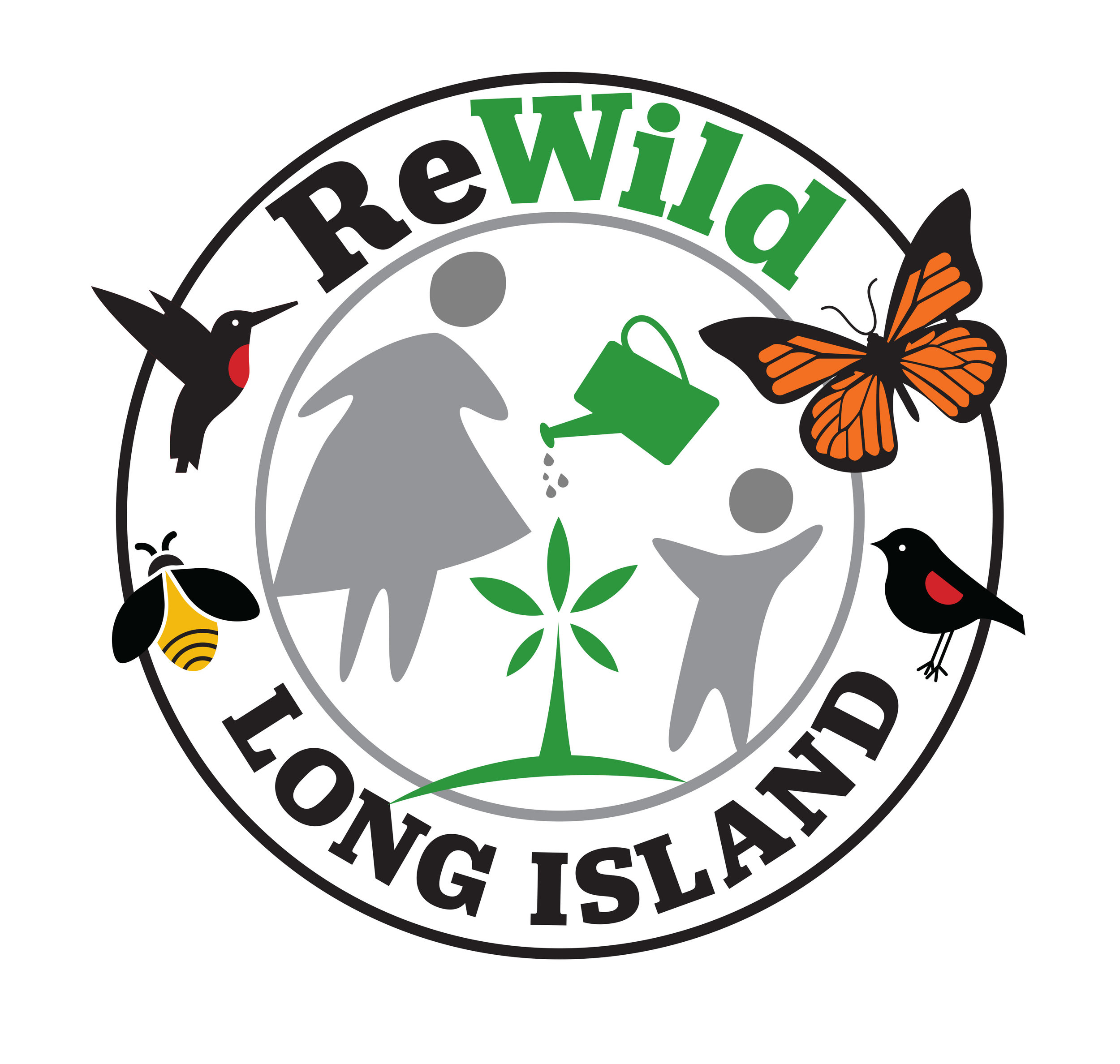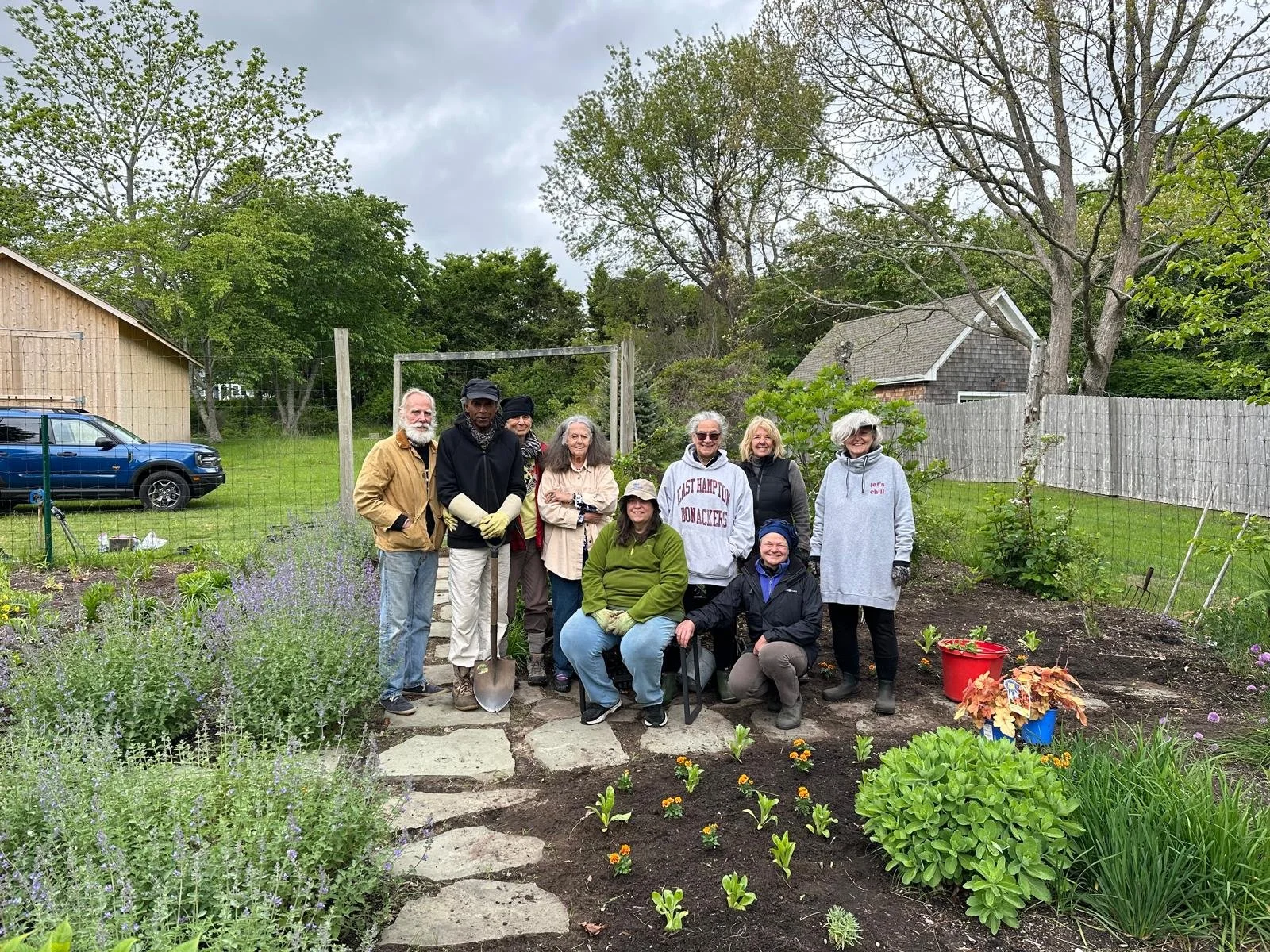ReWild Long Island Announces 20 New Community Garden Grant Recipients for 2025
Long Island, NY – [May 29, 2025] – ReWild Long Island is thrilled to unveil the 20 recipients of its Community Gardens Program grants for 2025. Now in its third consecutive year, this initiative works with local community groups to transform public spaces across Long Island into vibrant, ecologically rich native plant gardens. This brings the number of ReWild Community Gardens to 54.
Empowering Communities, Nurturing Nature
This year’s diverse group of recipients includes community spaces, schools, churches, and—for the first time—a hospital. Each collaboration represents a commitment to learning and working together to enhance beauty and biodiversity through native plants.
“We’re incredibly excited about the enthusiasm and dedication we’ve seen from our partners,” says Samantha Jo, ReWild Gardens Project Manager. “These gardens will not only beautify our neighborhoods, but also serve as habitats for local pollinators and living classrooms for community members of all ages.”
What the Grant Offers
The Community Gardens Program grant provides recipients a comprehensive package of benefits. They include professional garden design and installation consulting, free native plants, irrigation systems, educational signage, on-site maintenance guidance, and expert maintenance training and advice as well as a year-round online support group of Community Gardens recipients and ReWild sustainable garden experts. In exchange for these valuable resources, community groups commit to maintaining their new gardens on a weekly basis for at least two years (or the time it takes native plants to establish themselves) and hosting three classes open to the community in each of the two years.
Community Impact
These gardens will serve as more than just beautiful spaces. They'll be centers for education, community engagement, and ecological restoration. From supporting local pollinators to providing hands-on learning experiences for students, each garden will play a crucial role in fostering a deeper connection between people and nature.
Empowering Communities Through Education and Collaboration
Adding to the excitement, ReWild successfully completed its inaugural online Garden Design Workshop. This innovative 7-week program provided five Community Garden grant recipients and ten home gardeners with invaluable knowledge and expert support. Participants honed their design skills through lectures and hands-on lab sessions, culminating in the presentation of their final garden designs. We’re delighted to announce that all Community Garden designs will be brought to life this spring!
Looking Ahead
ReWild Long Island is committed to the long-term success of these projects. In addition to the grants, the organization recently concluded its inaugural Sustainable Garden Design Online Workshop. This interactive lab provided participants with valuable insights into creating healthy, pollinator-friendly gardens, guided by native plant experts. The workshop not only equipped home gardeners with professional design skills but also prepared our 2025 Community Garden recipients to implement their projects in the coming months.
"We're not just planting gardens; we're planting seeds of change in our communities," Jo adds. "These native plant spaces will inspire and educate for years to come."
We encourage the community to visit these blossoming gardens and experience the positive impact of ReWild Long Island's Community Garden Grants.
To learn about previous years’ grant recipients and ReWild Long Island's initiatives, including the Summer Program for high school students, visit our website at ReWildLongIsland.org/gardens.
A Heartfelt Thank You to Our Generous Funders
These transformative gardens are made possible through grants from the National Fish and Wildlife Foundation (NFWF), Community Chest of Port Washington, the New York Pollinator Conservation Fund, The New York Community Trust, The New York Community Trust - Long Island, Long Island Sound Study (LISS) Sustainable and Resilient Communities Extension, New York State, the Office of the New York State Attorney General, New York State Assemblywoman Michaelle Solages, Liberty Utilities, and National Grid.
Taken at the Valley Stream Community Garden on May 4th, 2025
Taken at Matthew Lester Memorial Garden on May 21, 2025
Meet our 2025 Community Garden Grant Recipients
Our diverse group of recipients spans across Queens, Nassau County, Suffolk County, and the North and South Forks of Long Island. Here's a glimpse into the exciting projects:
Queens County
Alley Pond Park (Douglaston): Creating a native garden in a woodland area to enhance biodiversity and serve as an educational feature. The project aims to benefit pollinators and improve the park's ecological health while offering visitors opportunities to explore and learn about native plants.
Nassau County
Cathedral of the Incarnation (Garden City): Establishing a native pollinator meadow to complement their beekeeping project. The garden will restore native habitat, improve forage for local bees, and serve as an educational resource for visitors enjoying the cathedral's open green spaces.
The Port Washington Estates Association (PWEA): Local homeowners are uniting with a strong interest in beautifying their community and incorporating native plants to transform town traffic islands into natural habitats for ecological restoration. Planting in these highly trafficked areas will help generate interest in native plants throughout the town.
Succotash Gardens (Roosevelt): Developing a healing forest garden that showcases Black and Indigenous culinary traditions and ecological knowledge. The space will feature native plants, a food forest, and vegetable beds, fostering community connections and deepening relationships with the earth.
Valley Stream Community Garden: Collaborating with local stakeholders to create a sustainable garden demonstrating the synergy between food production and native ecosystems. The space will serve as a hub for hands-on learning, workshops, and community engagement.
West & Mid Suffolk Region
Erland Road (Stony Brook): Restoring a natural wetland on town property through community efforts. The project aims to engage residents in supporting local wildlife and enhancing the neighborhood's ecological value.
Farmingdale State College: Creating a native plant garden outside the Campus Center to beautify the campus sustainably. The garden will provide habitat for pollinators and migratory birds while enhancing the visual appeal for students, staff, and visitors.
Judy Jacobs-Parkway Elementary School (Plainview): Incorporating a native plant garden into the school grounds to provide experiential learning opportunities. The garden will educate students about pollinators and native plants, fostering environmental stewardship from an early age.
Northport High School: Implementing a campus beautification project that integrates native plants into a formal setting. The collaborative effort involves students from various programs and aims to attract pollinators while enhancing the school's appearance.
St. James Elementary School: Developing a native pollinator garden in the courtyard to serve as an outdoor education space for K-5 students. The project aims to promote participatory learning practices and improve student achievement.
Three Village Historical Society (East Setauket): Expanding an existing native plant garden to enhance community education and beautify the landscape for events. The garden will serve as a teaching resource and complement the organization's historical focus.
Unitarian Universalist Fellowship of Huntington: Creating a four-season native pollinator garden that aligns with the congregation's mission of honoring the interconnected web of existence. The garden will support local wildlife and educate visitors about environmental sustainability.
Walt Whitman Birthplace Association (Huntington Station): Showcasing a native plant garden as part of the tour of Walt Whitman's birthplace. The garden demonstrates the organization's commitment to protecting pollinators and educates visitors about native plants and environmental protection.
North Fork
Hallockville Museum Farm (Riverhead): Restoring the land to its natural state with a native plant garden that educates the public about the benefits of native species. The project aims to inspire home gardeners to incorporate native plants into their own landscapes.
Mattituck High School: Enhancing the school courtyard with a native plant garden, providing students with hands-on learning experiences in ecology, plant biology, and sustainability. The project deepens understanding of environmental science through practical application.
Northwell Hospital/Peconic Bay Medical Center (Riverhead): Designing a combined vegetable and native plant garden to address food insecurity and support local pollinators. The project creates a symbiotic relationship between food production, native plants, and resident honeybees.
The Oysterponds School Community (Orient): Enhancing an existing edible food garden with a native pollinator garden. The initiative aims to create a more sustainable landscape that benefits both pollinators and the local community while promoting outdoor learning.
South Fork
Springs School (East Hampton): Transforming a courtyard into a native pollinator garden and outdoor classroom. By integrating the garden and its plant-wildlife relationships into the curriculum, the school provides hands-on learning experiences that foster ecological understanding that can be applied at home and in the community.
Matthew Lester Memorial Garden (East Hampton): Evolving from Matthew’s Eagle Scout project into a memorial pollinator garden that connects native plants with vegetable beds. The garden, located on the East Hampton Historical Museum grounds, fosters community engagement and learning, collaborating with the ReWild South Fork chapter's Summer Program.
Windmill Village (East Hampton): Redesigning the front entrance of an affordable senior housing development with a native plant garden. The project serves as a community activity, enhances the property's beauty, and aims to inspire sustainable landscaping practices in the broader community.
Each of these projects represents a unique approach to integrating native plants into community spaces, fostering education, and promoting ecological awareness.
About the Author
Samantha Jo, ReWild Gardens Project Manager, brings a wealth of expertise as an accredited NYC Master Composter, Permaculturist, and former organic farmer. Her passion for health and sustainability drives her work with the Community Gardens Program and Summer Program, contributing significantly to ReWild’s mission.
Contact: Samantha@ReWildLongIsland.org
###


